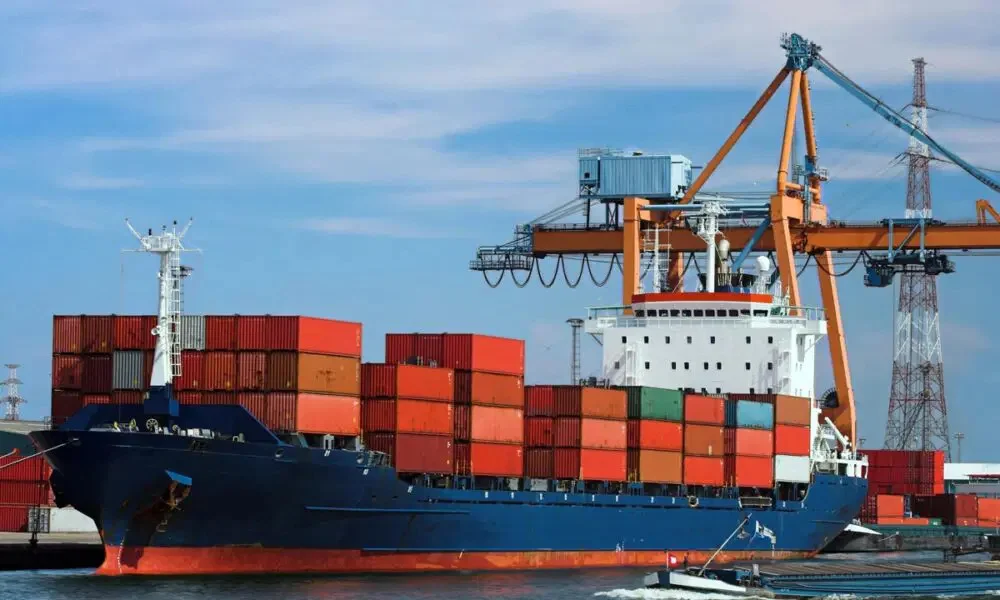Nigeria recorded a remarkable 39.91% increase in non-oil export performance in 2022, achieving earnings of $4.82 billion, the highest in the 47-year history of the Nigerian Export Promotion Council (NEPC), as reported by Victoria Ojeme on January 4, 2023. This milestone, unveiled by NEPC Executive Director and CEO Dr. Ezra Yakusak during a media briefing in Abuja, reflects resilience amid global economic challenges and remains a notable achievement as of 09:17 PM WAT on August 27, 2025.
Record-Breaking Export Growth
Despite the lingering effects of COVID-19 and a global economic recession, the non-oil export sector delivered a significant and highly impressive result, according to Yakusak. The $4.82 billion figure represents a substantial rise from 2021, based on data from Pre-shipment Inspection Agents under the Pre-shipment Inspection Act, Cap P25 LFN 2004. Yakusak attributed this success to the effectiveness of NEPC’s export intervention programs, which are yielding desired results despite a harsh economic climate.
In 2022, Nigeria exported 214 diverse products, including manufactured goods, semi-processed items, solid minerals, and raw agricultural products. Urea/fertilizer led the export list with a 32.87% share, a surge driven by the Russia-Ukraine war, which opened opportunities for Nigerian fertilizers. These products reached 122 countries, with Brazil topping the import value at 12.27%.
Key Performance Highlights
The NEPC’s 2022 review highlighted key contributors: 1,172 exporters participated, with Indorama-Eleme Fertilizer and Chemical Limited leading at 23.25%. Thirty-one issuing banks were involved, with Zenith Bank PLC processing the highest NXP values. Nineteen exit points were utilized, with Apapa Port handling the most tonnage. December recorded the highest export value at 10.37%, underscoring a strong year-end performance.
Notably, no African or ECOWAS country featured among the top 10 importers, a trend NEPC aims to reverse. Initiatives like the Export Trade House in Lome, a solo exhibition in Gambia, and participation in the Lome International Trade Fair are designed to boost intra-African trade under the Africa Continental Free Trade Area (AfCFTA), leveraging regional opportunities.
Strategic Initiatives for Growth
To enhance global competitiveness, NEPC launched the Go Global, Go for Certification initiative, facilitating international certifications like Hazard Analysis Critical Control Point (HACCP) and Food and Drug Administration standards for SMEs. Over 154 micro, small, and medium enterprises (MSMEs) have benefited, with certification processes underway for 200 more, aiming to reduce export rejections.
Additionally, NEPC collaborated with the Ministry of Industry, Trade and Investment on a fact-finding mission to the UK, observing agricultural import procedures to address export rejection challenges. The council established three Export Trade Houses (ETHs) in Cairo (Egypt), Lome (Togo), and Nairobi (Kenya) to increase market share, visibility, and foreign exchange inflows, creating jobs for youth. Plans for ETHs in China, Dubai, and the UAE are in progress under a Public-Private-Partnership (PPP) scheme, with 50 companies already exporting via these hubs.
Long-Term Impact
This 39.91% growth in 2022 positions Nigeria as a rising player in non-oil exports, a trend that continues to influence economic strategies into 2025. The focus on certifications, trade houses, and intra-African trade aligns with global and regional goals, promising sustained growth and market diversification. As NEPC builds on this success, the sector’s contribution to Nigeria’s economy remains a critical area of focus.






